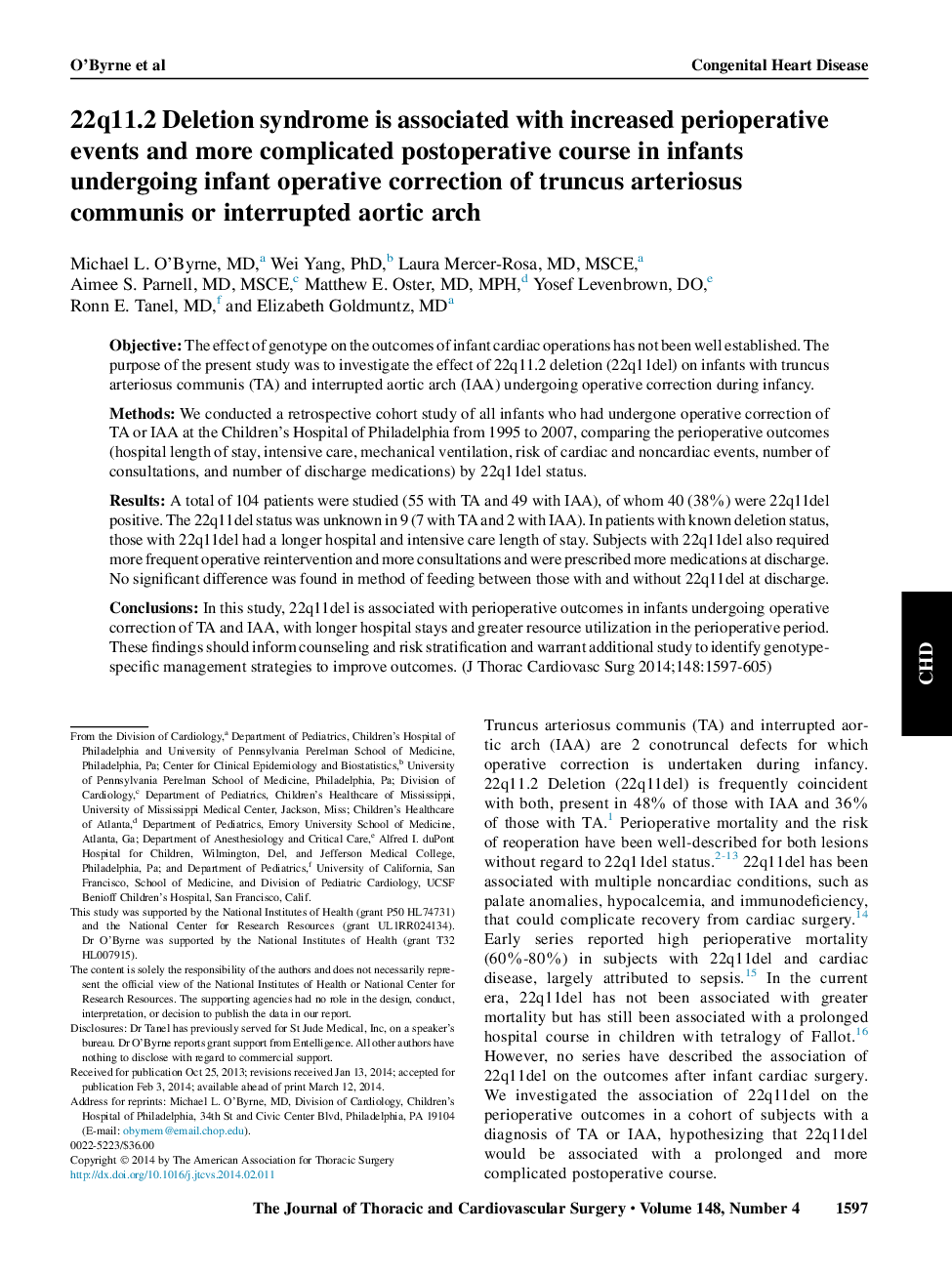| Article ID | Journal | Published Year | Pages | File Type |
|---|---|---|---|---|
| 2980425 | The Journal of Thoracic and Cardiovascular Surgery | 2014 | 9 Pages |
ObjectiveThe effect of genotype on the outcomes of infant cardiac operations has not been well established. The purpose of the present study was to investigate the effect of 22q11.2 deletion (22q11del) on infants with truncus arteriosus communis (TA) and interrupted aortic arch (IAA) undergoing operative correction during infancy.MethodsWe conducted a retrospective cohort study of all infants who had undergone operative correction of TA or IAA at the Children’s Hospital of Philadelphia from 1995 to 2007, comparing the perioperative outcomes (hospital length of stay, intensive care, mechanical ventilation, risk of cardiac and noncardiac events, number of consultations, and number of discharge medications) by 22q11del status.ResultsA total of 104 patients were studied (55 with TA and 49 with IAA), of whom 40 (38%) were 22q11del positive. The 22q11del status was unknown in 9 (7 with TA and 2 with IAA). In patients with known deletion status, those with 22q11del had a longer hospital and intensive care length of stay. Subjects with 22q11del also required more frequent operative reintervention and more consultations and were prescribed more medications at discharge. No significant difference was found in method of feeding between those with and without 22q11del at discharge.ConclusionsIn this study, 22q11del is associated with perioperative outcomes in infants undergoing operative correction of TA and IAA, with longer hospital stays and greater resource utilization in the perioperative period. These findings should inform counseling and risk stratification and warrant additional study to identify genotype-specific management strategies to improve outcomes.
